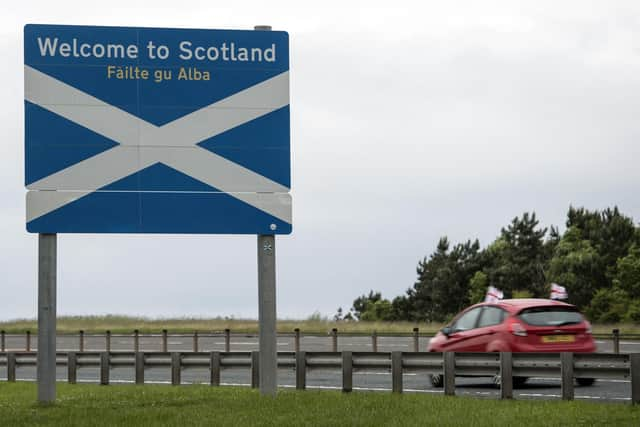Thousands more taxpayers move to Scotland from rest of UK since tax rates devolved, HMRC data shows
Thousands more taxpayers moved to Scotland from the rest of the UK in each year since powers over tax rates were devolved, research from HMRC has found.
At the request of the Scottish and Welsh governments, data on the tax base and migration was studied for the period between 2009 and 2022. After 2017, when Scottish tax rates started to diverge from those south of the border, if found net migration to Scotland increased.
Advertisement
Hide AdAdvertisement
Hide AdSimilarly, the amount of taxable income moving to Scotland increased from around 2019 onwards.


The Scottish Government welcomed the research, with Deputy First Minister Shona Robison saying it was “yet more proof that Scotland is an attractive place for people to live and work”.
The HMRC report said: “Beyond year ending 2017, the first year where income tax was [partially] devolved, net migration to Scotland increased on a yearly basis, to around 8,000 individuals in year ending 2022.
“This deviation from the generally stable trend reflects decreasing numbers of taxpayers migrating from Scotland to rUK combined with an increase in migration to Scotland in year ending 2022.”
Ms Robison said: “The latest figures show that across all tax bands and almost all age ranges in 2021/22, more taxpayers chose Scotland as their home than left – offering yet more proof that Scotland is an attractive place for people to live and work, while our progressive approach to income tax asks those who earn more to contribute some more.
“We know people base the decision on where to live on a range of factors, and by coming to Scotland they have access to a range of services and benefits not available elsewhere in the UK, including free tuition and prescriptions.
“Scotland has the most generous childcare package for three and four-year-olds, and council tax is lower here than in England. This social contract with the people of Scotland is funded in part by our progressive income tax system.
“Indeed, in 2021/22 some £200 million in taxable income was brought here as a result of inward migration in a single year, increasing economic activity while helping fund vital public services like our NHS and our efforts to tackle child poverty.”
Advertisement
Hide AdAdvertisement
Hide AdThe Scottish Conservatives said the HMRC study predated the latest Scottish Government Budget.
Scottish Conservative shadow finance secretary Liz Smith said: “This is desperate SNP spin and cherry-picking based on a single year, long before the tax gap was significantly widened.
“The study specifically says it can’t ‘draw definitive conclusions’ about workers’ movement. It warns that increased rates could have a significant impact, but that obviously does not fit the SNP’s narrative.
“And it predates the SNP’s devastating recent tax-and-axe budget, which has been widely viewed as the tipping point in the growing tax gap between Scotland and the rest of the UK.”
She continued: “Groups like the British Medical Association, the British Dental Association and, just the other day, government-owned Prestwick Airport have also warned that it is becoming harder and harder to recruit and retain skilled workers.
“Rather than burying their heads in the sand and twisting the facts, SNP ministers need to act now, to end Scotland’s status as the highest taxed part of the UK.”
Comments
Want to join the conversation? Please or to comment on this article.